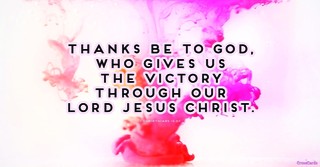
- Recent Translations
- All Translations
Images for 1 Corinthiens 15:26


Share
1 Corinthiens 15:26 Meaning and Commentary
The last enemy that shall be destroyed is death.
] Not eternal death; for though that is abolished by Christ with respect to his own people, who shall never be hurt by it, and over whom it shall have no power; yet the wicked will always be subject to it, and under the dominion of it: but a corporeal one is here meant; which is an enemy, the fruit, effect, and wages of sin; the penalty and curse of the law; is contrary to human nature, and destructive of the work of God's hands: it is, indeed, through the blood, righteousness, and sacrifice of Christ, become the friend of his people; it is disarmed of its sting, and ceases to be a penal evil; it is the saints' passage to glory, what frees them from the troubles of this world, and is their way to the joys of another; but yet in itself is formidable to nature, and disagreeable to it: and it is the last enemy; it is so both in its rise and duration; it appeared as an enemy last; Satan was the first enemy of mankind, who attacked, tempted, and ruined the first parents of human nature, and all their posterity in them; and by this means, sin, the next enemy, came into the world of men; and, last of all, death, with its numerous train of calamities, either going before, attending, or following of it: and as it was the last enemy that came into the world, it is the last that will go out of it; for when the saints are rid of Satan, and clear of sin, they will remain in the grave under the power of a corporeal death till the resurrection, and then that will be "destroyed": for the saints will be raised to an immortal life, never to die more, and to an enjoyment of everlasting life, in the utmost glory and happiness; and though the wicked when they rise, they will rise to damnation, to shame and contempt, yet their worm will never die, nor their fire be quenched; they will always live, though in torment, there will be no more corporeal death, neither among the righteous nor the wicked; it will be utterly abolished: and thus the apostle, though he seems to digress from his subject awhile, by relating the several things which will either immediately or quickly follow the second coming of Christ; yet at the same time has it in view, and proves the doctrine of the resurrection of the dead, which must needs be, or death cannot be said to be destroyed, and by degrees returns to his subject again.